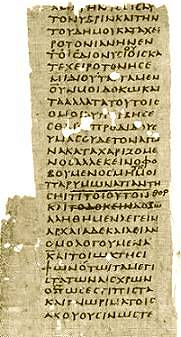Library
Alexander the Great -- the Conquests as a source of knowledge
The Founding of the Library and the Mouseion
The Egyptian Section of the Alexandria Library
The Papyri: Evidence of Greek and Egyptian Scientific Interchange
The Pinakes -- a Bibliographical Survey of the Alexandria Library
The Alexandria Library -- " The Memory of Mankind"
Appendix 1 -- The Contents of the Alexandria Library
Appendix 2 -- The End of the Library
References
The Modern
Library
BIBLIOTHECA ALEXANDRINA--The revival of the Ancient Library of Alexandria
Back to Alexandria Home Page
The idea of a universal library, like that of Alexandria, had to wait for historic changes that would help to develop a new mental outlook which could envisage and encompass the whole world.
We owe it primarily to the inquisitive Greek mind, which was impressed by the achievements of its neighbours and which led many Greek intellectuals to explore the resources of Oriental knowledge.
 This mental attitude among the Greeks, and the emergence of the concept of a universal culture, was given full expression in due course when Alexander embarked on his global expedition.
This mental attitude among the Greeks, and the emergence of the concept of a universal culture, was given full expression in due course when Alexander embarked on his global expedition.
We are familiar with a Greek literary tradition that preserved a vague memory of eminent Greeks - both legendary and historical - who made the journey to Egypt in the quest of learning (Diod. I. 98. 1-4). In many cases, the accounts are either fictitious or exaggerated, but during the century prior to Alexander's campaign, there is concrete evidence of Greek individuals visiting Egypt in particular, to acquire knowledge; this is reflected in the surviving writings of, for example, Herodotus, Plato (esp. Phaedo and Timaeus), Theophrastus (Athen.2. 42b) and Eudoxus of Cnidus (D. L. 8. 86-90).
It may be relevant, at this point to cite the example of Eudoxus, whose subsequent influence seems to have had bearings on the beginnings of the Library in Alexandria.
Diogenes Laertius, in introducing this outstanding astronomer and mathematician, enumerates among his sources, the Pinakes of Callimachus and also a work of Eratosthenes addressed to Baton, both writers known to be extremely well informed on Greek science and scientists, especially when related to Egypt.
Eudoxus, we are told, came to Egypt (c. 350 BC.) with letters of introduction from Agesilaus to Nectanebo II, who in turn introduced him to the priests with whom he spent 16 months studying astronomy. He was entrusted to the special care of Chonouphis, a priest from Heliopolis, the highly reputed centre of learning in Egypt at that time.
While in Egypt, Eudoxus composed a book on astronomy entitled The Eight Year Cycle (Oktaeteris) and, according to Eratosthenes, the work called Dialogue of Dogs may have been a translation by Eudoxus from the Egyptian. This biographical data, with its implied Egyptian influence, has more than once been subjected to disparaging criticism.1
Photo: Part of a column from a payrus roll containing Aeschines' "Against Ctesiphon"